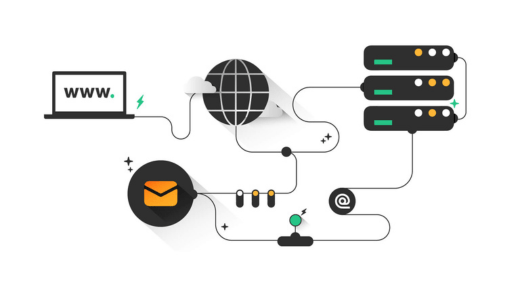
Uptime is a critical factor in web hosting as it directly impacts the availability and accessibility of your website to visitors. To better comprehend the significance of uptime, let’s explore 30 key points and the associated pros and cons:
1. Uptime Defined:
- Pros: Uptime refers to the percentage of time a website is accessible.
- Cons: Downtime refers to the opposite, when a site is inaccessible.
2. User Experience:
- Pros: High uptime ensures a positive user experience.
- Cons: Frequent downtime frustrates visitors and impacts credibility.
3. Search Engine Rankings:
- Pros: Search engines favor websites with high uptime.
- Cons: Downtime can lead to lower search rankings.
4. Business Credibility:
- Pros: Consistent uptime builds trust with customers.
- Cons: Downtime harms your business’s reputation.
5. Revenue Generation:
- Pros: E-commerce sites rely on uptime for sales.
- Cons: Downtime leads to revenue loss.
6. Customer Retention:
- Pros: High uptime retains customers and encourages return visits.
- Cons: Downtime can drive customers away.
7. Service Level Agreements (SLAs):
- Pros: Hosting providers often offer SLAs guaranteeing uptime.
- Cons: Violations may result in compensation.
8. Monitoring Tools:
- Pros: Tools like uptime monitors track your site’s availability.
- Cons: Some monitoring tools come with additional costs.
9. Downtime Causes:
- Pros: Downtime can result from various factors, including server issues, maintenance, or cyberattacks.
- Cons: Identifying and addressing the specific cause can be challenging.
10. Hosting Providers: – Pros: Different hosting providers offer varying uptime guarantees. – Cons: Not all providers meet their guarantees.
11. Hardware Reliability: – Pros: Reliable hardware and data centers minimize downtime. – Cons: Hardware failures can still occur.
12. Data Center Quality: – Pros: High-quality data centers enhance uptime. – Cons: Limited control over data center selection with some hosts.
13. Redundancy: – Pros: Redundancy systems reduce downtime risk. – Cons: Redundancy may not be available in all hosting plans.
14. Backup Systems: – Pros: Backup systems can quickly restore service after downtime. – Cons: Regular backups may require additional costs.
15. Disaster Recovery: – Pros: Plans for disaster recovery minimize downtime’s impact. – Cons: Comprehensive disaster recovery may come at a higher cost.
16. Managed Hosting: – Pros: Managed hosts ensure efficient problem resolution. – Cons: Managed hosting can be more expensive.
17. Security Measures: – Pros: Enhanced security prevents downtime due to cyberattacks. – Cons: Security investments may increase hosting costs.
18. Software Updates: – Pros: Regular updates can enhance server stability. – Cons: Updates can sometimes lead to downtime.
19. Server Monitoring: – Pros: Real-time monitoring helps detect and address issues. – Cons: Monitoring tools require setup and maintenance.
20. Load Balancing: – Pros: Distributes traffic to prevent server overloads. – Cons: Setup and maintenance can be complex.
21. High Availability (HA): – Pros: HA systems maximize uptime and minimize failures. – Cons: HA solutions can be costly.
22. Server-Level Caching: – Pros: Caching at the server level reduces server load. – Cons: Limited customization of caching settings.
23. Content Delivery Networks (CDNs): – Pros: CDNs enhance site performance and uptime. – Cons: CDN services may incur additional costs.
24. Technical Support: – Pros: Hosting providers with 247 support help address issues promptly. – Cons: Quality of support can vary among providers.
25. Disaster Preparedness: – Pros: Disaster preparedness plans improve uptime during crises. – Cons: Comprehensive disaster preparedness may require additional investments.
26. Scalability: – Pros: Scalable hosting accommodates increased traffic. – Cons: Scaling can come with increased costs.
27. Technical Expertise: – Pros: Technical expertise can help maintain server uptime. – Cons: Inadequate expertise can result in downtime.
28. DDoS Mitigation: – Pros: DDoS protection measures safeguard against attacks. – Cons: Protection may come at an additional cost.
29. Cost Predictability: – Pros: Transparent pricing with predictable costs. – Cons: Costs can rise due to additional uptime measures.
30. Uptime Guarantees: – Pros: Hosting providers often offer uptime guarantees. – Cons: Violations may result in compensation.
In conclusion, uptime in web hosting is a critical factor that impacts user experience, search engine rankings, business credibility, and revenue generation. Hosting providers offer varying uptime guarantees, and downtime can result from multiple factors. Careful planning, monitoring, and investment in uptime-boosting measures are essential for maintaining a reliable and accessible website.




